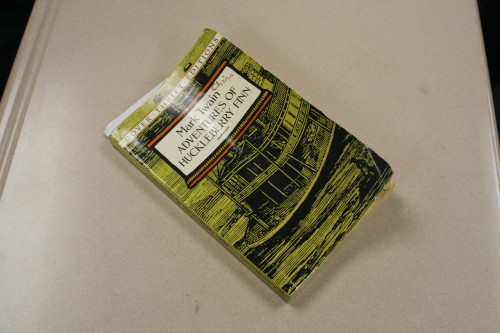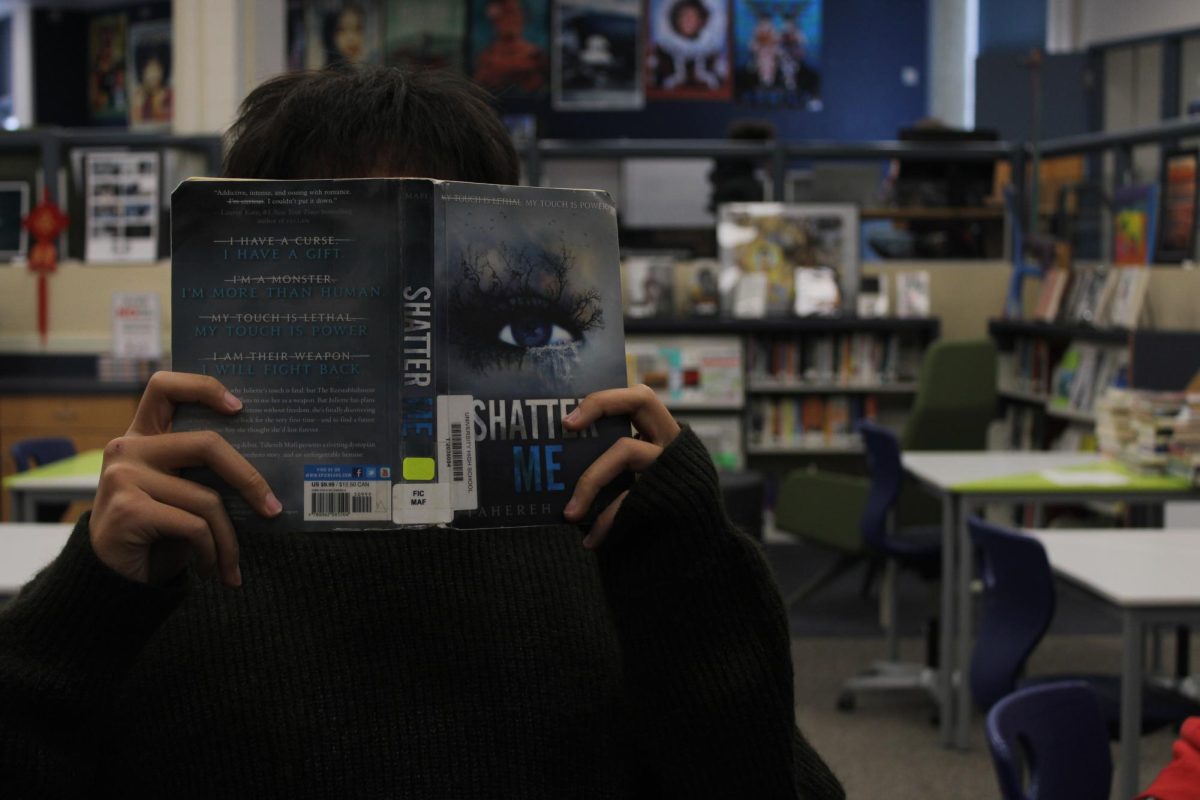
By AISHEE DAS
Staff Writer
The Adventures of Huckleberry Finn
The University High School (UHS) English Department typically assigns
Huck Finnby Mark Twain to students as a novel to describe the long era of slavery in United States history. Known as
, it does not cover the era of slavery with justice because it refuses to accurately represent black individuals. Instead, it further enforces stereotypes.
Jim, the black slave who is on the run with the protagonist, Huckleberry or Huck, is a static and stock character who readers can easily sympathize with. On the other hand, readers easily identify and relate to Huck Finn because he shows emotional maturity and depth in character.
Because readers pity Jim and relate to Huck, they change more from Huck’s story because the connection between the character and reader is stronger. A novel that modern students read on slavery should be focused on a black character and not the recurring white one.
Mr. Garcia (English Dept.)said, Huck Finn is placed in the curriculum because “Twain shows an accurate representation of a historical era, and we, as teachers, have debates on the historical and current relevance of the n-word. Education is giving students the tools to reach a higher state of learning. Huck Finn is the tool that schools use to help students decide its importance.”
The n-word, however, is a loaded word, with its own pain and history. Schools, as an institution, have no right to reclaim it or allow students to decide the importance of the word by themselves. That right belongs to the victims and the countless still affected by offensive uses of the word.
Huck FinnAt some schools, students are allowed to read alternatives if they are uncomfortable with use of the n-word in
Huck Finn, but the majority of the class will choose to read
. Why does a student have to be isolated from the rest of the class for feeling uncomfortable with a historically degrading slur? Why does our curriculum choose to single out a particular group of students to be pushed out of their comfort zones?
Huck FinnBlack students have to quietly accept the characterizations of their people as it is only a historical novel and not in modern context. Modern racial slurs would never be allowed in the curriculum, but why is the n-word included, which is arguably the most loaded and vicious slur in our history? Allowing students to “opt out” of reading
forces them to make a political statement just to retain their own comfort.
Huck FinnMr. Garcia said, “I would love to teach an alternative to
with a black author because it will give a more representative view on slavery. However, you have to account for the explicit and personal stories of trauma that these authors will write about and how school-friendly they are.”
Novels become classics because they either are written by famous writers or become popular for a period of time in our history. We carry the popularity of the novel, no matter how shallow the reason of popularity may be, and establish them as classics.
Mr. Alix (English Dept.)However, many of these “classics” are only in our curriculum because of what was thought to be important and relevant. A century-old novel with over 200 occurrences of a racial slurs, outdated satire and problematic representation is not a novel we should be teaching without criticizing.
said that “the people who decide on what we read are members of the culture that has the problem. Just like Twain was a member of that culture that had the problem.”
As the curriculum is ages old, and redefining the American Literature curriculum would take years of reformation and lobbying, we, as readers, need to be conscious of our history and understand the people who are truly affected by the history behind these stories.
These stories need to be made relevant to modern times, which entail teaching from an inter-sectional point of view and considering points of gender, class and race. Although we read these books for pleasure or to learn a lesson or two, it is important that we criticize our classics and learn from their faults.
A response to this article, written by Akansha Sah, can be read here.













